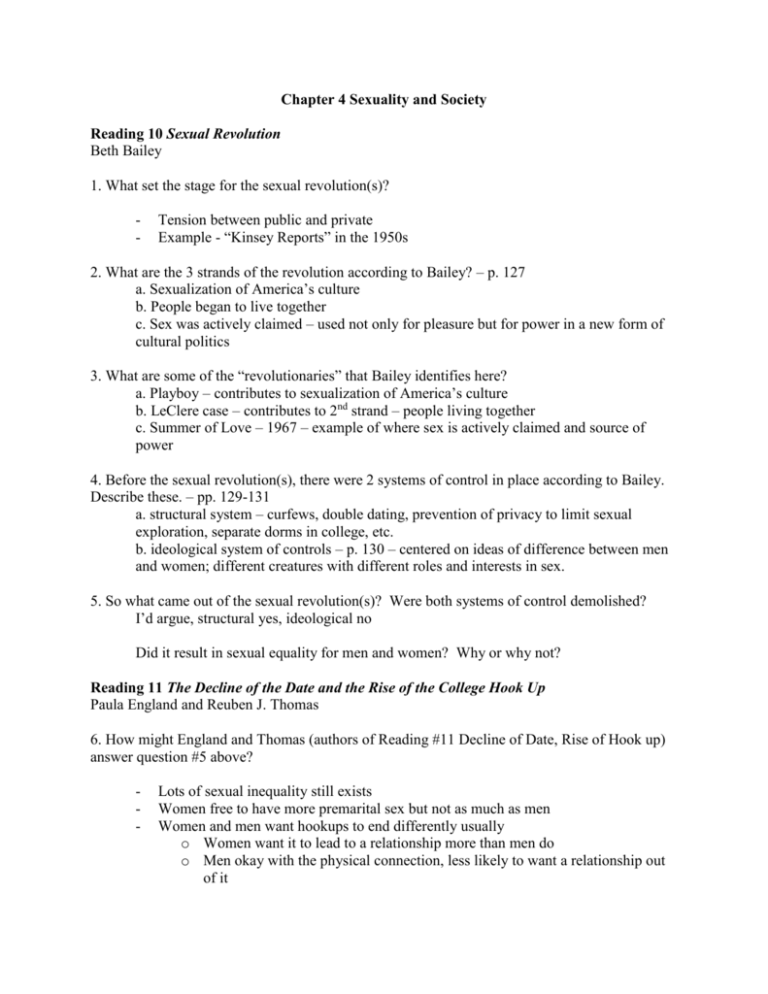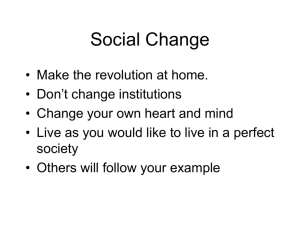
Chapter 4 Sexuality and Society
Reading 10 Sexual Revolution
Beth Bailey
1. What set the stage for the sexual revolution(s)?
-
Tension between public and private
Example - “Kinsey Reports” in the 1950s
2. What are the 3 strands of the revolution according to Bailey? – p. 127
a. Sexualization of America’s culture
b. People began to live together
c. Sex was actively claimed – used not only for pleasure but for power in a new form of
cultural politics
3. What are some of the “revolutionaries” that Bailey identifies here?
a. Playboy – contributes to sexualization of America’s culture
b. LeClere case – contributes to 2nd strand – people living together
c. Summer of Love – 1967 – example of where sex is actively claimed and source of
power
4. Before the sexual revolution(s), there were 2 systems of control in place according to Bailey.
Describe these. – pp. 129-131
a. structural system – curfews, double dating, prevention of privacy to limit sexual
exploration, separate dorms in college, etc.
b. ideological system of controls – p. 130 – centered on ideas of difference between men
and women; different creatures with different roles and interests in sex.
5. So what came out of the sexual revolution(s)? Were both systems of control demolished?
I’d argue, structural yes, ideological no
Did it result in sexual equality for men and women? Why or why not?
Reading 11 The Decline of the Date and the Rise of the College Hook Up
Paula England and Reuben J. Thomas
6. How might England and Thomas (authors of Reading #11 Decline of Date, Rise of Hook up)
answer question #5 above?
-
Lots of sexual inequality still exists
Women free to have more premarital sex but not as much as men
Women and men want hookups to end differently usually
o Women want it to lead to a relationship more than men do
o Men okay with the physical connection, less likely to want a relationship out
of it
-
Women less likely to experience orgasm
7. So why didn’t the sexual revolution and/or the gender revolution lead to sexual equality
between men and women?
-
Do you think the media plays a role in keeping gender roles and expectations for sex
the same as they were in the past?
8. Watch “The Codes of Gender”
9. What is the main thesis presented in this video? Do you agree or disagree with it? Why or
why not? What does this mean for gender roles in families?










